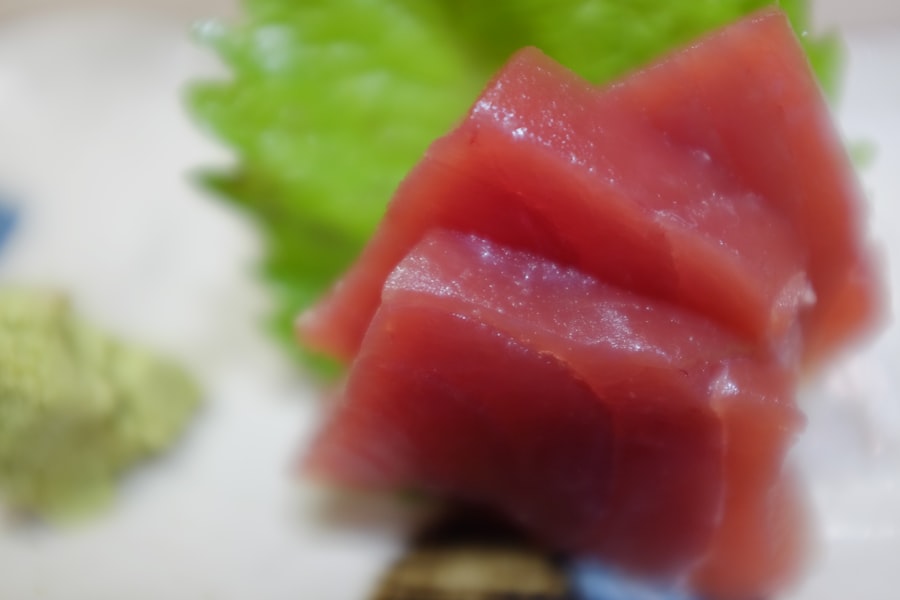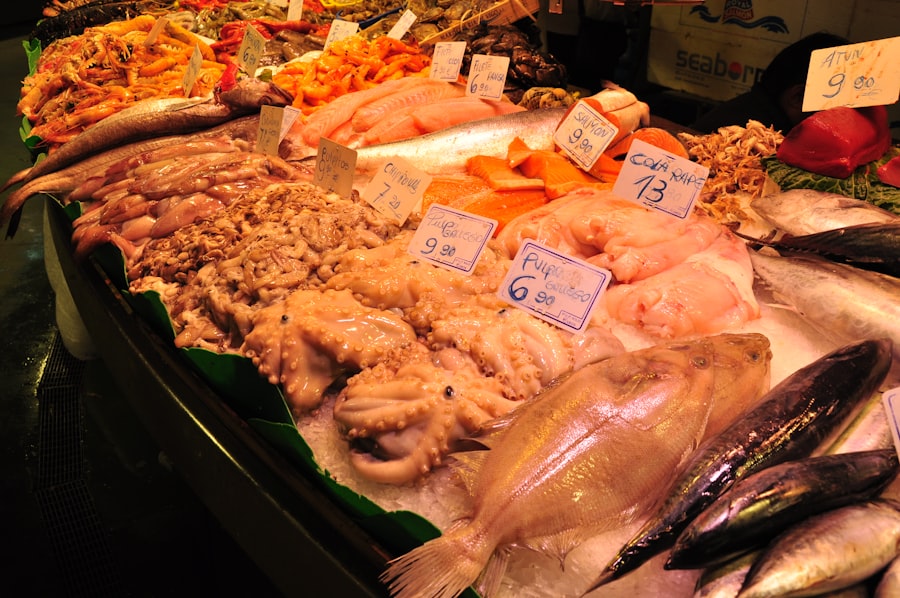In recent years, cheap tuna has surged in popularity, becoming a staple in many households around the globe. Its affordability and convenience have made it a go-to option for busy families and individuals seeking quick meal solutions. However, this widespread consumption comes at a significant cost, both to the environment and to society.
The demand for inexpensive tuna has led to unsustainable fishing practices, exploitation of workers, and detrimental effects on local communities. As consumers increasingly prioritize cost over ethical considerations, the ramifications of their choices extend far beyond the dinner plate. The rise of cheap tuna is not merely a reflection of consumer preferences; it is also indicative of broader economic trends.
The global market for tuna has expanded dramatically, driven by the insatiable appetite for seafood and the relentless pursuit of profit by corporations. This phenomenon raises critical questions about the sustainability of such practices and the moral implications of prioritizing low prices over ethical sourcing. As the industry continues to grow, it becomes imperative to examine the multifaceted impacts of cheap tuna on both people and the planet.
Key Takeaways
- Cheap tuna’s popularity has significant social and environmental consequences.
- Worker exploitation is a major issue in the production of low-cost tuna.
- Overfishing and bycatch from cheap tuna fishing harm marine ecosystems.
- Small-scale fishermen and coastal communities suffer from the dominance of cheap tuna fishing.
- Supporting sustainable tuna practices and stronger regulations is essential for ethical consumption.
Exploitation of workers: The human cost of cheap tuna production
The production of cheap tuna often involves a hidden human cost that is rarely acknowledged by consumers. Many workers in the tuna fishing industry face harsh conditions, long hours, and inadequate pay. Reports have surfaced detailing instances of forced labor, human trafficking, and abuse aboard fishing vessels.
These workers, often from impoverished backgrounds, are lured by the promise of employment but find themselves trapped in a cycle of exploitation. The quest for cheap tuna inadvertently supports a system that devalues human life and dignity. Moreover, the lack of regulation in many fishing regions exacerbates these issues.
Workers are frequently subjected to unsafe working environments, with little recourse for reporting abuses or seeking better conditions. The drive for lower prices creates a race to the bottom, where companies cut corners on labor rights to maximize profits. As consumers enjoy their affordable tuna, they may unknowingly contribute to a system that perpetuates suffering and injustice among those who labor to bring this product to market.
Environmental degradation: The toll of overfishing and bycatch on marine ecosystems

The environmental consequences of cheap tuna production are profound and far-reaching. Overfishing has become a critical issue, with tuna populations declining at alarming rates due to unsustainable fishing practices. Industrial fishing fleets often employ methods that not only target tuna but also result in significant bycatch—unintended species caught in the nets.
This bycatch can include endangered species, juvenile fish, and other marine life essential to maintaining healthy ecosystems. The depletion of tuna stocks disrupts marine food chains and threatens biodiversity. As key predators in their habitats, tuna play a vital role in maintaining the balance of ocean ecosystems.
The environmental degradation caused by overfishing is not just an abstract concern; it poses real threats to the health of oceans and the livelihoods of communities that depend on them.
Impact on local communities: How cheap tuna fishing affects small-scale fishermen and coastal communities
| Metric | Description | Impact on Small-Scale Fishermen | Impact on Coastal Communities |
|---|---|---|---|
| Average Income Reduction (%) | Decrease in earnings due to competition with industrial tuna fishing | 30-50% decline reported in some regions | Lower household incomes and reduced local spending |
| Fish Stock Depletion Rate | Annual percentage decline in local tuna populations | Up to 20% decline per year in overfished areas | Reduced fish availability for community consumption and trade |
| Employment Loss | Number of jobs lost in small-scale fishing sector | 15-40% reduction in fishing-related jobs | Increased unemployment and migration to urban areas |
| Market Price Drop (%) | Decrease in local tuna prices due to cheap imports | Prices fall by 25-35%, reducing profitability | Economic strain on local markets and businesses |
| Community Food Security | Availability of tuna as a protein source | Reduced catch limits access to affordable protein | Increased reliance on imported or less nutritious food |
| Investment in Local Infrastructure | Funding for fishing-related community projects | Decline in investment due to reduced revenues | Stagnation or deterioration of community facilities |
The rise of cheap tuna has had a detrimental impact on small-scale fishermen and coastal communities around the world. As large industrial fleets dominate the fishing industry, local fishermen struggle to compete with the low prices offered by mass-produced tuna. This competition often leads to a decline in traditional fishing practices and threatens the cultural heritage of communities that have relied on sustainable fishing for generations.
Furthermore, the influx of cheap tuna can destabilize local economies. Small-scale fishermen may find it increasingly difficult to sell their catch at fair prices, leading to economic hardship for families that depend on fishing as their primary source of income. The erosion of local fisheries not only affects individual livelihoods but also diminishes food security in coastal regions where access to fresh seafood is vital.
As communities grapple with these challenges, the social fabric that binds them together begins to fray.
Animal welfare: The ethical considerations of catching and processing cheap tuna
The ethical implications of catching and processing cheap tuna extend beyond human concerns; they also encompass animal welfare issues. The methods employed in tuna fishing can be brutal, with many fish subjected to inhumane treatment during capture and processing. For instance, some fishing practices involve using large nets that ensnare multiple fish at once, leading to overcrowding and suffering before they are ultimately killed.
Additionally, the processing facilities where cheap tuna is prepared for market often prioritize efficiency over humane treatment. Fish may be subjected to harsh conditions during transport and processing, raising questions about the ethicality of such practices. As consumers become more aware of animal welfare issues, there is a growing demand for transparency in how seafood is sourced and processed.
The ethical considerations surrounding cheap tuna highlight the need for a more compassionate approach to fishing that respects both human and animal rights.
Health concerns: The potential risks of consuming cheap, low-quality tuna

While cheap tuna may be appealing due to its price point, there are significant health concerns associated with consuming low-quality seafood. One major issue is the potential for contamination with harmful substances such as mercury and polychlorinated biphenyls (PCBs). These toxins can accumulate in fish over time, posing serious health risks to consumers who regularly eat contaminated seafood.
Cheap tuna may be more susceptible to spoilage or contamination during handling and storage, increasing the likelihood of foodborne illnesses. As consumers prioritize affordability over quality, they may inadvertently expose themselves to these health hazards.
It is essential for individuals to consider not only the cost but also the safety and nutritional value of the seafood they choose to consume.
Corporate responsibility: The role of big tuna companies in addressing the moral impact of their products
As major players in the tuna industry, large corporations bear a significant responsibility for addressing the moral implications of their products. Many big tuna companies have made commitments to sustainability and ethical sourcing; however, there is often a gap between these promises and actual practices on the ground. Transparency in supply chains is crucial for holding companies accountable and ensuring that they adhere to ethical standards.
Corporate responsibility extends beyond mere compliance with regulations; it involves actively working to improve conditions for workers, protect marine ecosystems, and support local communities affected by fishing practices. By prioritizing ethical considerations alongside profit margins, companies can play a pivotal role in transforming the industry for the better. Consumers increasingly expect corporations to take responsibility for their impact on society and the environment, making it imperative for big tuna companies to lead by example.
Consumer awareness: The importance of understanding the hidden costs of cheap tuna
Consumer awareness is a powerful tool in driving change within the tuna industry. Many individuals remain unaware of the hidden costs associated with cheap tuna—costs that extend beyond monetary value to encompass environmental degradation, worker exploitation, and health risks. By educating themselves about these issues, consumers can make informed choices that align with their values.
Raising awareness about the true impact of cheap tuna can lead to increased demand for sustainable alternatives and ethical sourcing practices. As consumers begin to prioritize quality over price, they can influence market trends and encourage companies to adopt more responsible practices. Initiatives such as labeling programs that highlight sustainable seafood options can empower consumers to make choices that reflect their commitment to social and environmental responsibility.
Sustainable alternatives: Supporting ethical and sustainable tuna fishing practices
In light of the numerous challenges posed by cheap tuna production, supporting ethical and sustainable fishing practices has never been more critical. Consumers can seek out brands that prioritize sustainability through responsible sourcing methods, such as pole-and-line fishing or using fish aggregating devices (FADs) that minimize bycatch. These practices not only help protect marine ecosystems but also ensure fair treatment for workers involved in the fishing process.
Additionally, organizations dedicated to promoting sustainable seafood can provide valuable resources for consumers looking to make informed choices. Certifications from reputable organizations can guide individuals toward products that meet high standards for environmental stewardship and social responsibility. By choosing sustainable alternatives, consumers can contribute to a more equitable and environmentally friendly seafood industry.
Government regulations: The need for stronger policies to address the moral impact of cheap tuna
To effectively address the moral implications of cheap tuna production, stronger government regulations are essential. Policymakers must implement measures that promote sustainable fishing practices while protecting workers’ rights within the industry. This includes enforcing stricter regulations on labor conditions aboard fishing vessels and ensuring compliance with environmental standards.
International cooperation is also crucial in tackling issues such as overfishing and illegal fishing practices that transcend national borders. Governments must work together to establish comprehensive frameworks that hold corporations accountable for their impact on marine ecosystems and local communities. By prioritizing ethical considerations in policy-making, governments can help create a more just and sustainable future for both people and oceans.
Encouraging ethical choices and advocating for change in the tuna industry
The popularity of cheap tuna presents a complex web of challenges that extend far beyond its price tag. From worker exploitation and environmental degradation to health concerns and animal welfare issues, the consequences of prioritizing affordability over ethics are profound. As consumers become increasingly aware of these hidden costs, there is an opportunity for collective action toward change within the industry.
Encouraging ethical choices requires a concerted effort from individuals, corporations, and governments alike. By supporting sustainable alternatives, advocating for stronger regulations, and demanding transparency from companies, consumers can play an active role in reshaping the future of the tuna industry. Ultimately, fostering a culture of responsibility and awareness will pave the way for a more equitable seafood market—one that respects both people and the planet while ensuring that future generations can enjoy healthy oceans filled with thriving marine life.
The moral cost of cheap tuna is a pressing issue that highlights the ethical implications of our food choices. Many consumers are unaware of the environmental and social consequences associated with the fishing industry, particularly in the case of tuna. For a deeper understanding of these issues, you can read a related article that explores the hidden costs of our seafood consumption at Hey Did You Know This. This article sheds light on the impact of overfishing and the exploitation of labor in the tuna supply chain, encouraging readers to consider the broader implications of their purchasing decisions.
WATCH THIS! The $10 Billion Lie: Why Your “Dolphin-Safe” Tuna Isn’t Safe
FAQs
What is the main issue discussed in “The Moral Cost of Cheap Tuna”?
The article addresses the ethical and environmental concerns associated with the production and consumption of inexpensive tuna, including labor exploitation, overfishing, and ecological damage.
Why is cheap tuna considered morally problematic?
Cheap tuna often comes at the expense of fair labor practices, sustainable fishing methods, and environmental protection, leading to human rights abuses and harm to marine ecosystems.
How does tuna fishing impact the environment?
Tuna fishing can contribute to overfishing, bycatch of non-target species, and damage to marine habitats, which threaten biodiversity and the health of ocean ecosystems.
What labor issues are associated with cheap tuna production?
There have been reports of forced labor, poor working conditions, and exploitation of workers in some parts of the tuna supply chain, particularly in certain fishing fleets and processing facilities.
Are there sustainable alternatives to cheap tuna?
Yes, consumers can choose tuna products certified by organizations like the Marine Stewardship Council (MSC) or those labeled as sustainably caught, which adhere to better environmental and social standards.
How can consumers make ethical choices when buying tuna?
Consumers can look for certifications, research brands’ sourcing practices, support companies committed to fair labor and sustainable fishing, and reduce overall tuna consumption to lessen demand for cheap, unethical products.
What role do governments and organizations play in addressing these issues?
Governments and international bodies can enforce regulations on fishing quotas, labor standards, and supply chain transparency, while NGOs work to raise awareness and promote sustainable and ethical tuna production.
Is the problem of cheap tuna limited to certain regions?
While labor abuses and unsustainable fishing practices are more prevalent in some regions, the global nature of the tuna supply chain means these issues can affect multiple countries and markets worldwide.
